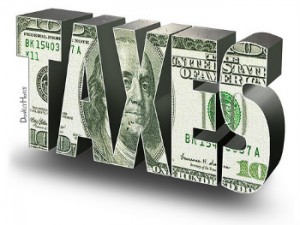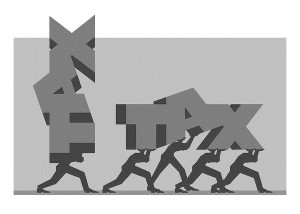History of Income Tax
Tax History
Where did our income taxes come from?
People do not pay taxes so that they can finance the goods and services that they will receive. Taxation is a collective process. This is necessary in order to pay for the government activities for the benefit of the people as a whole. Taxes, either federal taxes or state taxes, were seen as necessary and important for the progress of the economy of every country. Although taxes didn’t always exist in this great land of ours they eventually came. This article explores the history of income taxes in the Americas.
Early Taxation
The importance of taxation has been first established in European countries, during the time of the great explorers and traders. Many political leaders have agreed that taxation is necessary for the existence of the government and for society to progress and grow. Taxes are collected from individuals so that when they are pooled together, it will comprise a huge amount that will benefit the citizens of that particular nation.
By examining the revenue side of the budget, it reveals the importance of Prussia’s revenue came from public property. Prussia rose to become a great power in Europe because their status relied on the public finance. This is due to the large acquisitions public finance because of the collection of public properties beginning 1640 and onwards. It was during that time that there was no clear distinction between what belongs to the monarch and the government. In the nineteenth century, Europe was at its own liberal period. The government never rejected the idea that the public properties form the bulk of the nation’s wealth. This is especially true for lands and forests owned by the government. Half of the net public revenue came from public property. The state grew concerned about that there was exploitation of public property. It has also been regarded as the focus of progress in the economy. Public property that is considerably substantial will be beneficial to the government because it would guarantee the loans of the public and improve its credit standing.
American Revolution
Taxation was imposed on all the colonies of England including America. The king of England decided to impose taxes on British colonies in America because the government lacked funds. The earliest tax in colonial America was known as the Sugar Act. It was enacted in 1764 and immediately imposed on the colonies. The Act’s primary goal was to raise revenues. It was then revised later to include molasses. Under the Act, a tax was required as payment for the importation of molasses. There were no tax breaks or tax filing systems. The Sugar Act made the products of England cheaper than those from other European countries. The tax was also known as an attempt for sugar planters from the British West Indies to monopolize local trade.
In 1765, the Stamp Act was another form of taxation on all legal documents and even playing cards for entertainment. Other types of documents from the colonies were also required to have tax stamps. The next form of taxation was the Townshend Duties which were named after Charles Townshend who was a British chancellor. He developed a tax package and shared his idea with the rest of Parliament. The duties were imposed on tea, paper, glass and paint. When the Townsend Duties did not raise a high amount of revenue as expected, the Tea Tax was retained. The Americans showed their protest by staging the Boston Tea Party. This was one of the reasons that sparked the American Revolution.
The American patriots were angry at the British colonists because they had no right to impose taxes. They felt that the British were tyrants because of imposing taxes without American representation in the British government. Although federal and state tax did not exist during this time, it came in an earlier form of taxation.The history of taxes in colonial America began with products used for trade. The taxes imposed were so high that some resorted to smuggling to avoid paying taxes.
American cries of protests eventually changed the minds of Parliament but taxes were still imposed through other Acts. The discontent over high taxes and tyranny eventually led to rise of the American patriots and the beginning of the American Revolution.
Taxation is an important and significant economic and social tool in policy. By imposing heavier federal taxes on the rich and by also giving back some of the collected state taxes in the form of benefits to the public. The government can try to promote the equal distribution of wealth that would also benefit the poor. Tax breaks were granted according to the terms of tax law.
To learn more about tax history Click Here




